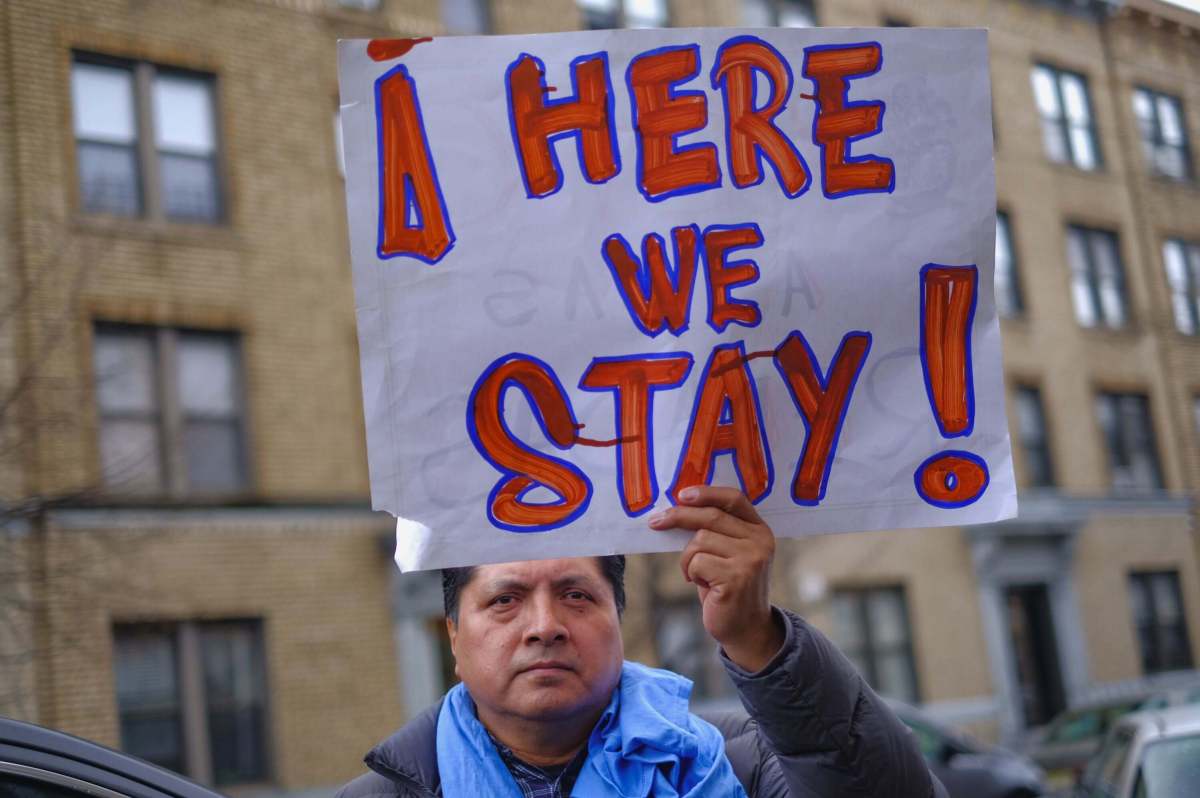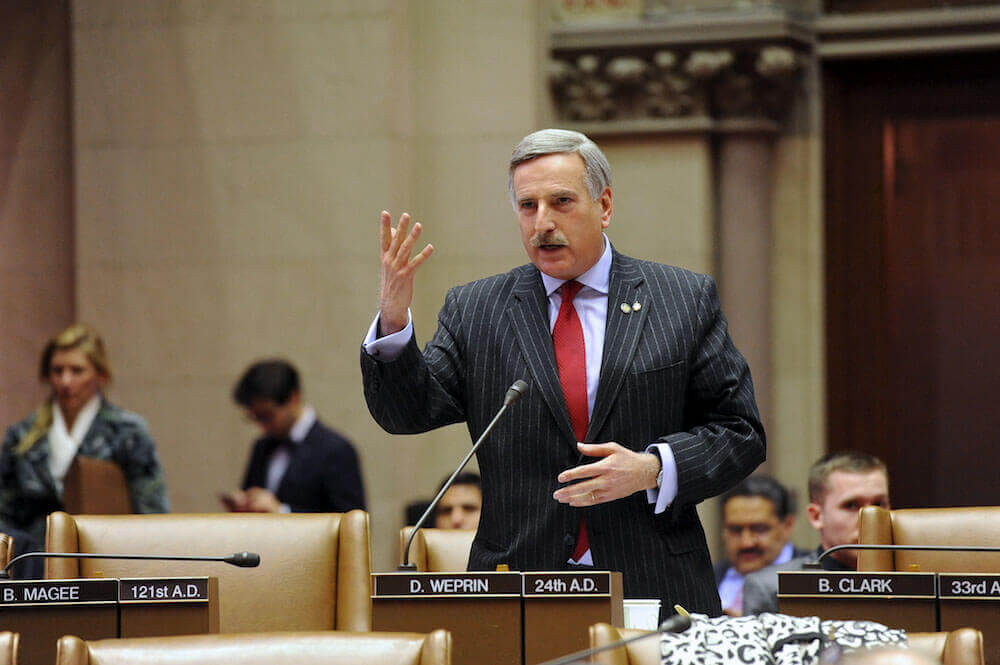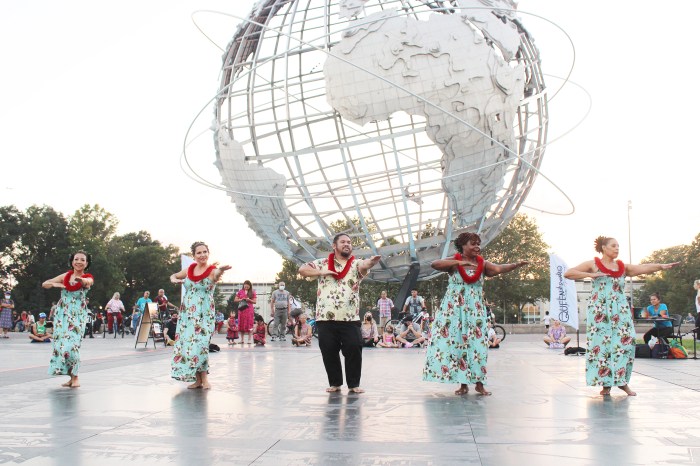The clock is running down on the nine-bill “universal rent control” package in the state Legislature, where there is a push to vote before New York’s rent control laws expire on June 15.
It looks like the progressive legislators propelling the legislation have secured the support needed to pass all nine bills in the now Democratically controlled senate.
“Following a long discussion within the Senate Majority Conference, it is clear that we have support for all nine priority housing bills,” Democrat Senate Majority Leader Andrea Stewart-Cousins said Tuesday in a statement. Meanwhile, the fact that Assembly Speaker Carl Heastie has not made a corresponding announcement indicates uncertainty in the other chamber.
Of the nine bills that would end vacancy decontrol and the vacancy bonus and address a number of other loopholes that leave tenants vulnerable to bad landlords, one stands out among as a particularly wide-reaching and controversial: Bushwick Senator Julia Salazar’s good cause eviction bill.
Framed as an amendment to the property laws governing eviction, the bill would give tenants recourse from being driven out of their home by excessive rent hikes. The amendment would make it illegal for a landlord to force a tenant out based on an “unconscionable” rent increase – defined 150 percent of the inflation rate or a 3.3 percent increase, based on New York’s average inflation over the past 19 years. To evict a tenant, a landlord would need to prove nuisance, illegal activity and a breach of the lease.
“And so a tenant could say to a landlord who doesn’t want to renew their lease, ‘Nope, that’s not enough. You’ve got to demonstrate why I’m not entitled to remain in this apartment in court,'” said Sateesh Nori, the attorney-in-charge of the Queens Civil Office of The Legal Aid Society.
Nori, who has spent all of his 18-year career in housing court, said that the new legislation would play out in court in the same way that rent regulation law do.
“That’s a higher standard. And so for many landlords who were just speculating or want to charge a little bit higher rent, but something that’s unaffordable to most people, they might think twice because their cost of entry into housing court is a little bit higher,” he said.
At a recent town hall on the legislation in Ridgewood, Senator Michael Gianaris pointed out that the measure is encountering the most resistance because it’s the only one of the nine that would provide protection to people who are not rent-regulated. He said that he thinks it scares the real estate industry for this reason.
The bill’s greater uncertainty in the assembly than in the senate is reflected among Queens legislators. Only two out of seven Queens senators have not co-sponsored the legislation, while seven out of 18 Queens Assembly members have not supported it.
In addition to extending protections to tenants who are not rent-regulated, the law also would form an expansion of rent regulation. Another major component of the bill is that it would widen rent-stabilization rules that only apply to buildings with six or more units to apply to buildings with four or more. This would be especially important for Queens where there is a higher concentration of small houses than in Brooklyn, the Bronx or Manhattan.
Nori said that the passage of the bill would be only be the beginning of the process of reforming housing court, which he said is currently a mess when it comes to challenging illegal increases in rent-stabilized housing.
“What would happen in a good cause situation will hopefully be a much simpler, more streamlined process by which a tenant can say, ‘This was my old rent. This is what they want to charge me. It’s over the allowable increase, so it’s not allowed,’” he said.
At the moment for rent-stabilized tenants, increases are self-reported and self-justified by landlords so many tenants don’t know when their rent is being increased illegally. After four years, these rent hikes get grandfathered into legal status.
He pointed out that the enforcement of the eviction statute would be bolstered by the Right to Counsel law that passed two years ago guaranteeing that tenants have the right to legal representation.
“There’s already lawyers now, many more than there were. And there’s going to be a lot more over the next three to five years as the planning phases in. So we’re all ready, we’re all waiting there in court and lawyers like me in Queens are desperate for more weapons – or more shields, if you will – to protect people who are vulnerable,” Nori said.



































